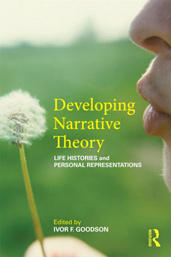Developing Narrative Theory: life histories and personal representation
Narrativity, Learning and Flexibility: towards the narrative future
In reviewing chapters 7–10, it is very important to stress that these types of narrativity only represent the dominant mode that people adopt in telling their life stories. They are not totally pure, all or nothing categories. All people move somewhat between these narrative forms. Nonetheless, having talked at great length with our life storytellers we tend to find that most people do follow a primary category – an elaborator elaborates most of the time, a describer describes most of the time. These different styles leave people very differentially equipped for new social and economic futures.
The complexity of the modern world has been highlighted by the complex positionality of narrative constructionism. We have pointed to one paradox of the post-modern condition: that in a world of multiple niche identities and rapid change people often use their narratives to ‘anchor’ their sense of self and provide continuity and coherence. As Bauman points out, continuity seeking has a kind of ‘negative equity’ to it, but he concedes – as do others – that a sense of coherent purpose, ‘of firmly fixed and steady orientation points’, is of enduring importance for narrative construction.
This comes close to some of the arguments of Adam Curtis deployed in his wonderful documentaries ‘The Century of Self’ and ‘the Trap’. He says:
What we have is a cacophony of individual narratives, everyone wants to be the author of their own lives, no one wants to be relegated to a part in a bigger story; everyone wants to give their opinion, no one wants to listen. It’s enchanting, it’s liberating, but ultimately it’s disempowering because you need a collective, not individual narrative to achieve change. (Bunting, The Guardian, 28 June 2009: 23)
